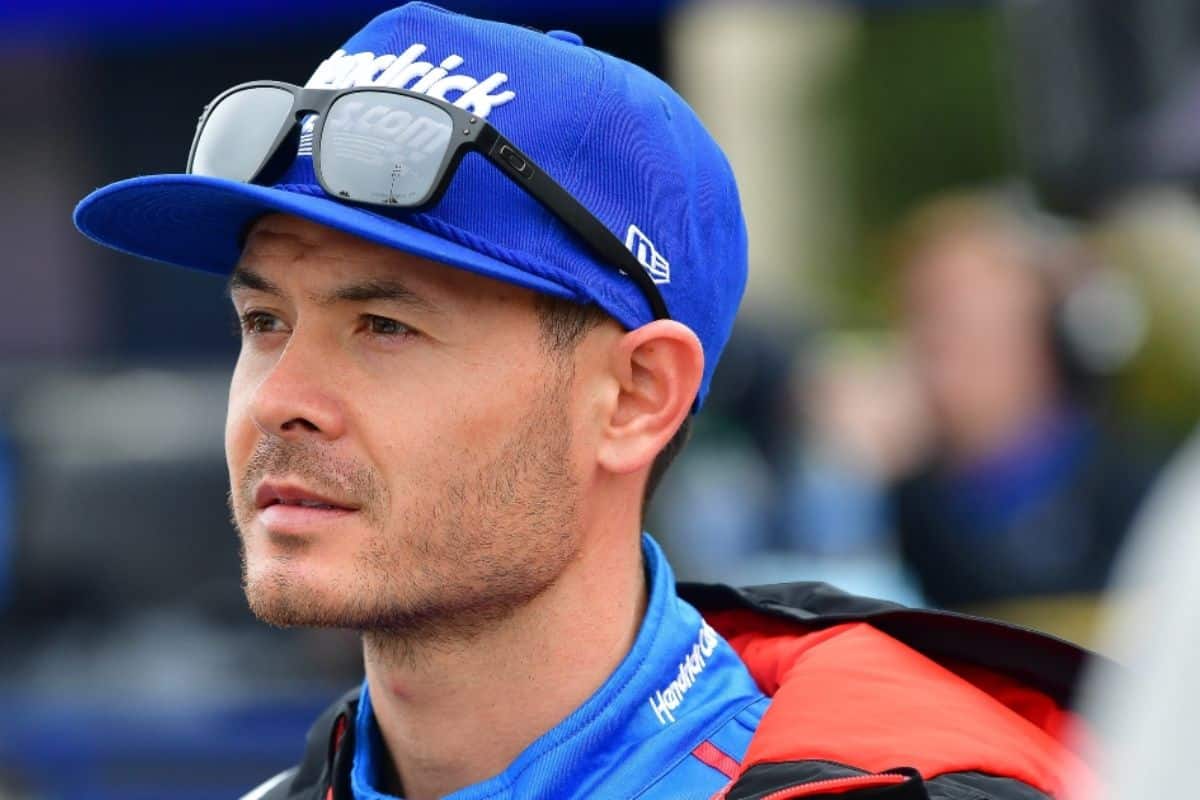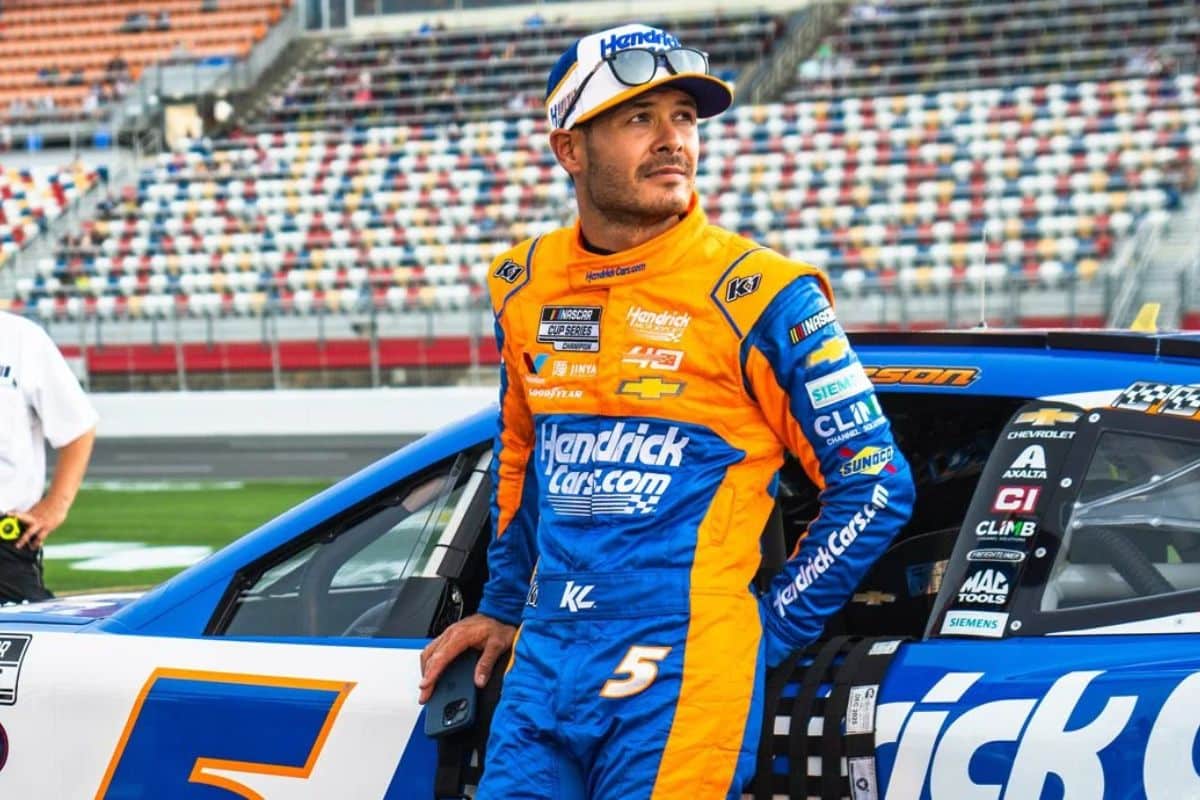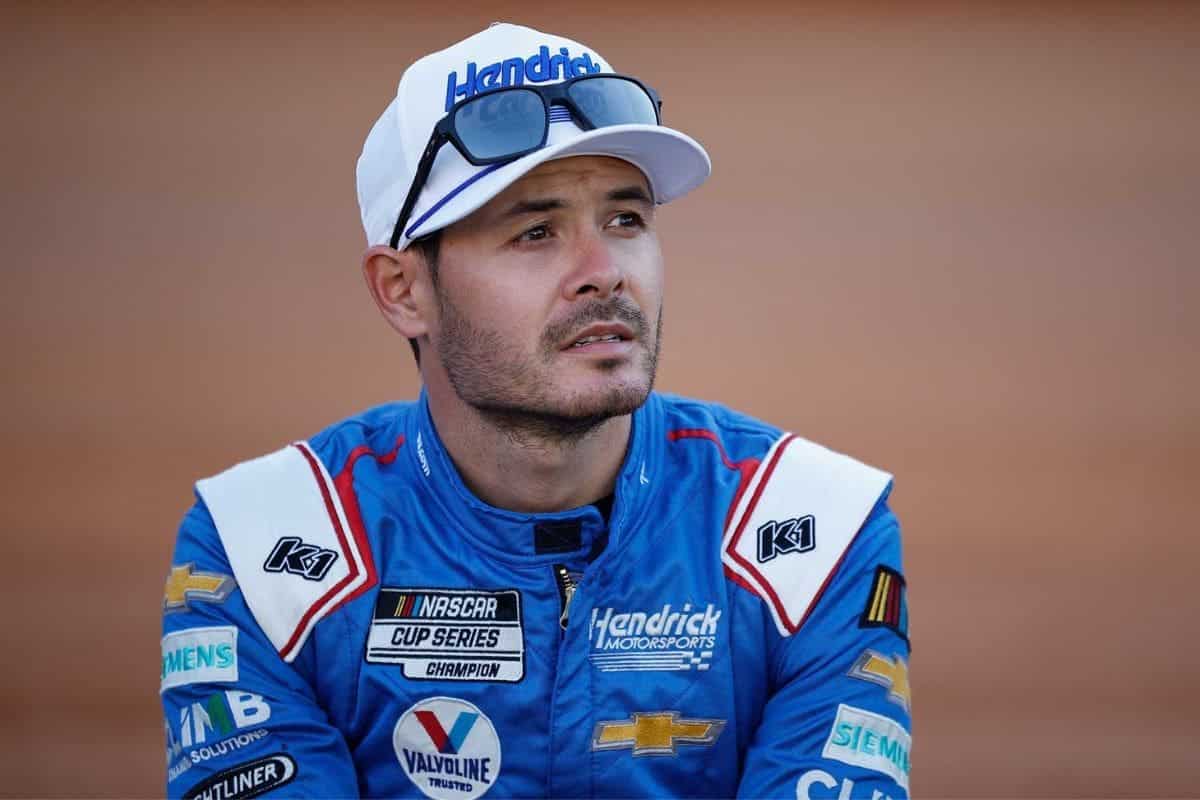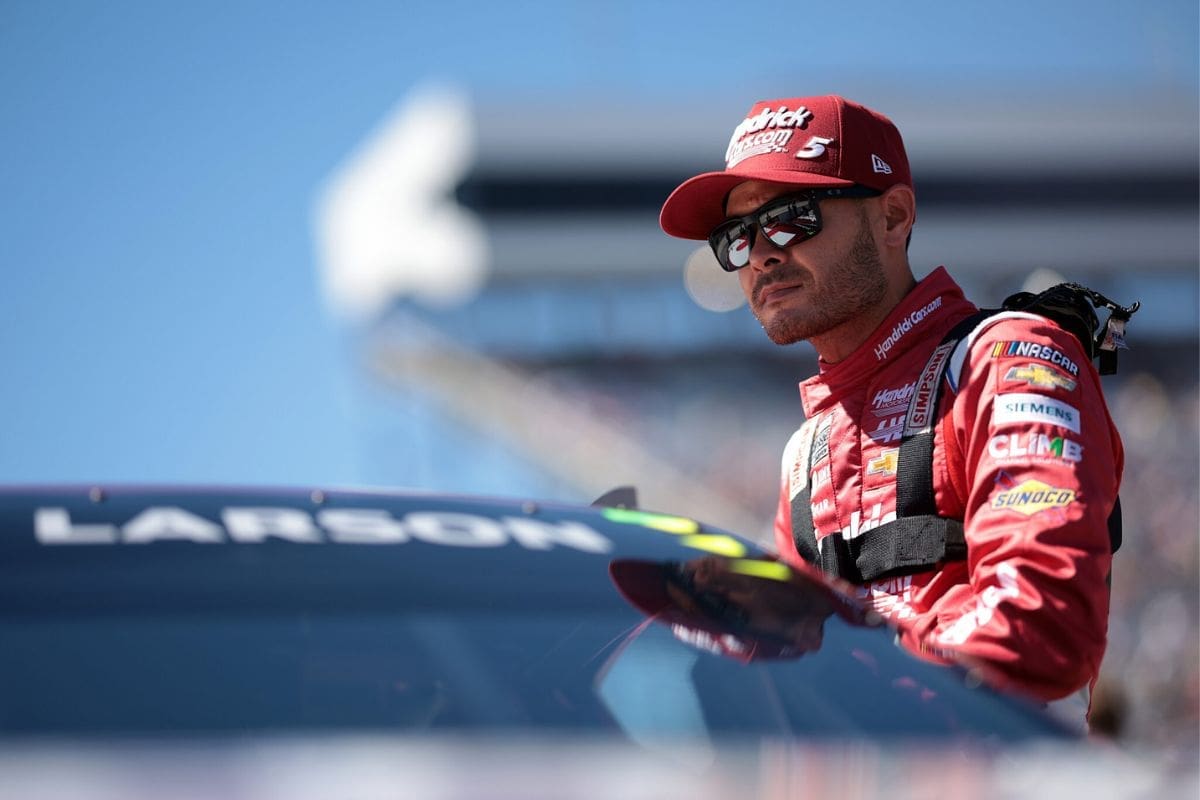NASCAR Considers Penalty for Kyle Larson: The recent decision by NASCAR to forgo penalizing Kyle Larson for opting to participate in the Indy 500 over the Coca-Cola 600 has sparked considerable dialogue within the racing community. While Larson’s choice posed potential risks to his playoff eligibility, NASCAR’s ultimate stance to maintain his 17 playoff points highlights a thoughtful approach that considers both the sport’s competitive integrity and the unique circumstances surrounding his decision. This move not only alleviates concerns within Larson’s team but also sets a significant precedent for future cross-participation in major racing events.
Key Highlights
- NASCAR evaluated Larson’s playoff eligibility before deciding against penalties.
- Weather conditions influenced Larson’s choice between the Indy 500 and the Coca-Cola 600.
- NASCAR reinstated Larson’s 17 playoff points after deliberation.
- Denny Hamlin’s insights impacted NASCAR’s decision to prioritize fan engagement.
- The decision to avoid penalties aims to maintain TV viewership and fan interest.
Kyle Larson’s Predicament and NASCAR’s Decision
Kyle Larson faced a challenging predicament as he chose to compete in the Indy 500 over the Coca-Cola 600, prompting NASCAR to carefully deliberate on whether to enforce a penalty according to their playoff rules. This decision placed Larson at a significant crossroads, as missing the Coca-Cola 600, a crucial race in the NASCAR season, could potentially hamper his standing in the playoffs. The dual commitment highlighted the complexities athletes face when balancing competing priorities in different racing series.
NASCAR’s decision-making process in this scenario was intricate, given the weight of the playoff implications and the expectations from the racing community. While NASCAR’s rules are crafted to safeguard fairness and competitive integrity, they also must consider the broader context and the spirit of competition. The decision to waive the penalty for Larson took into account the unique circumstance of his participation in the prestigious Indy 500, an event that transcends the regular racing calendar.
The announcement of NASCAR’s decision to waive Larson’s absence from the Coca-Cola 600 was met with widespread relief and approval. This acknowledges Larson’s contributions to the sport and respects the fans’ sentiments, who had been anxiously awaiting the verdict. The decision highlights NASCAR’s willingness to adapt and respond to extraordinary situations, balancing rule enforcement with the need to nurture the sport’s dynamic nature.

Kyle Larson’s Reasoning and Risk
Recognizing NASCAR’s decision to waive the penalty, it is imperative to understand the compelling reasons and inherent risks that influenced Kyle Larson’s choice to compete in the Indy 500 over the Coca-Cola 600.
One of the primary factors was the notorious weather conditions which often plague the scheduling of these events. The threat of adverse weather can greatly impact race outcomes and schedules, prompting drivers to make strategic decisions that might deviate from standard protocols.
Moreover, the soaring viewership associated with the Indy 500 added a layer of allure to Larson’s decision. The prestige and visibility of competing in one of motorsport’s most iconic events present undeniable career benefits. For a driver, the opportunity to be featured on such a grand stage can translate into increased sponsorships and heightened fan engagement, effectively boosting their professional trajectory.
However, these benefits did not come without significant risks. The NASCAR Rulebook stipulates that a driver must participate in every race for playoff eligibility, emphasizing the necessity to at least attempt to qualify. By opting for the Indy 500, Larson was acutely aware that he was walking a tightrope, with potential repercussions including disqualification from playoff contention.
The risk was compounded by the tight scheduling, as the Indy 500 commenced just 90 minutes before the Coca-Cola 600, leaving minimal margin for error in terms of logistics and travel.
NASCAR’s Consideration and Decision-Making Process
In evaluating whether to penalize Kyle Larson for his decision to compete in the Indy 500, NASCAR undertook a thorough review process, taking into consideration both the rulebook’s stipulations and the broader implications for the sport and its fanbase. The absence of precedent in such cases posed a significant challenge. Historically, waivers were granted mainly in instances involving physical injuries or suspensions, setting a narrow framework for decision-making.
NASCAR’s Senior Vice President of Competition, Elton Sawyer, played a crucial role in clarifying the organization’s stance. According to Sawyer, all potential options, including penalties, were carefully evaluated. He stated, ‘Sawyer acknowledges all options were on the table, including some penalties, but ultimately the rulebook says NASCAR can either grant a waiver or not. So they viewed that as their two options in the end.’ This dichotomy simplified the decision matrix but heightened the necessity for a choice that aligned with both regulatory adherence and the sport’s ethos.
Sawyer acknowledges all options were on the table, including some penalties, but ultimately the rulebook says NASCAR can either grant a waiver or not. So they viewed that as their two options in the end.
— Jeff Gluck (@jeff_gluck) June 4, 2024
Central to NASCAR’s decision was Kyle Larson’s immense popularity and his potential impact on the playoffs.
“To not have Kyle Larson in our playoff and give our fans the opportunity the chance to see him race for a championship…at the end of the day, that didn’t feel like that was the right decision for us to make. We didn’t.” – Elton Sawyer
Ultimately, NASCAR opted not to penalize Larson, a decision reflective of a broader strategic consideration: preserving the excitement and inclusivity of the sport, thereby ensuring its continued resonance with a diverse and passionate fanbase.

Relief for Racing Communities
The decision not to penalize Larson, while preserving NASCAR’s competitive integrity, brings immense relief to both the IndyCar and NASCAR communities, who had been advocating for his participation. This outcome not only reinstates Kyle Larson’s 17 playoff points but also sets the stage for his highly anticipated performance in the upcoming playoffs, commencing on September 8 at Atlanta Motor Speedway.
The rallying support from both communities highlights a broader sentiment that transcends individual allegiances, reflecting a collective hope for fair competition and the celebration of talent. The reinstatement of Larson’s playoff points ensures that the competitive landscape remains undistorted by external controversies, allowing the focus to return to the sport itself.
- Restoration of Competitive Balance: By not imposing penalties, NASCAR maintains the playoff race unobstructed by administrative actions, preserving the integrity of the competition.
- Fan Engagement: Fans of both IndyCar and NASCAR, who had been fervent advocates for Larson, can now look forward to a more thrilling and inclusive playoff season.
- Team Morale: Larson’s team can now strategize and prepare without the looming uncertainty of penalties, fostering a more focused and motivated environment.
- Industry Reputation: NASCAR’s decision reinforces its commitment to fairness and judicious governance, enhancing its standing within the broader motorsport community.
- Athlete Confidence: By validating Larson’s participation, the decision uplifts the morale of other drivers, who see a precedent for balanced decision-making in the sport.
Denny Hamlin’s Prediction and NASCAR’s Response
Denny Hamlin’s insight into NASCAR’s decision to place a higher emphasis on popularity rather than strict regulations highlights his profound grasp of the sport’s fundamental dynamics. Hamlin, a seasoned statesman in motorsport, has consistently demonstrated an exceptional ability to predict NASCAR’s evolving strategies. His recent comments on Kyle Larson’s situation exemplify this, as Hamlin speculated on NASCAR’s potential leniency due to Larson’s immense popularity and the corresponding impact on TV ratings.
Hamlin’s foresight emphasized an essential balance NASCAR must maintain between enforcing rules and catering to fan engagement. His prediction materialized when NASCAR opted to grant Larson a waiver, aligning with the broader objective of maximizing viewer interest and maintaining high spirits within the fanbase.
“I just think we got to be careful thinking that we don’t need you, we are the show. That is a very dangerous way for our sport to think because these teams and these drivers are the show. If you start dinking around with things like waivers and just stuff, then you’re not helping anyone’s cause. And certainly not your own.” – Hamlin
In view of these developments, Hamlin’s role transcends that of a competitor; he emerges as a significant figure shaping the sport’s trajectory. His acute understanding of the interplay between regulatory measures and audience appeal has proven invaluable. NASCAR’s response to Larson’s scenario exemplifies the sport’s adaptive strategies in a landscape where entertainment value is paramount.

News in Brief: NASCAR Considers Penalty for Kyle Larson
NASCAR’s decision to forgo penalizing Kyle Larson for participating in the Indy 500 instead of the Coca-Cola 600 highlights the organization’s dedication to fairness and inclusivity within the sport. This resolution alleviates potential disruptions to Larson’s playoff eligibility, preserving the integrity of the competition.
By taking into account the unique circumstances and historical lack of precedent, NASCAR guarantees a playoff season characterized by clarity and excitement, fostering a positive atmosphere within the racing communities.
Our Reader’s Queries
Q: Did NASCAR give Larson a waiver?
A: “This was without a doubt uncharted waters for us,” Elton Sawyer, senior vice president of competition, said in a Tuesday teleconference. Despite the difficult circumstances, NASCAR ultimately decided to grant Larson an exemption from the above rule, allowing him to compete in this year’s postseason hunt.

